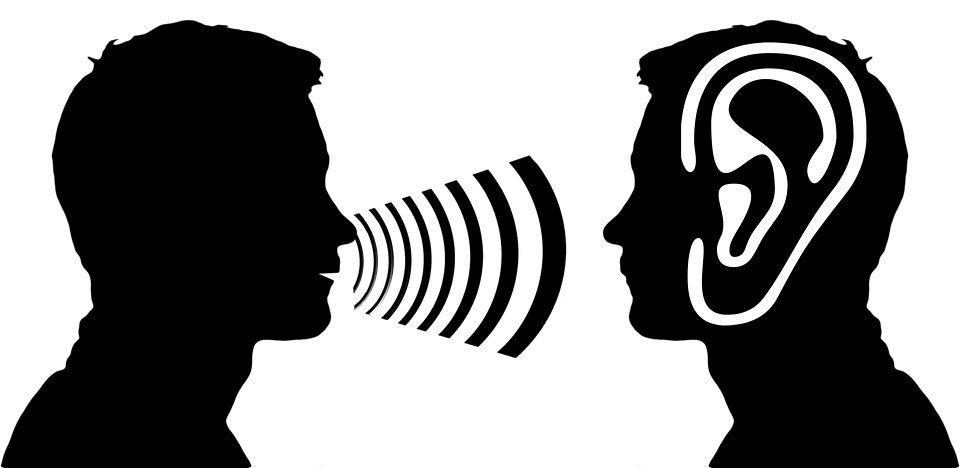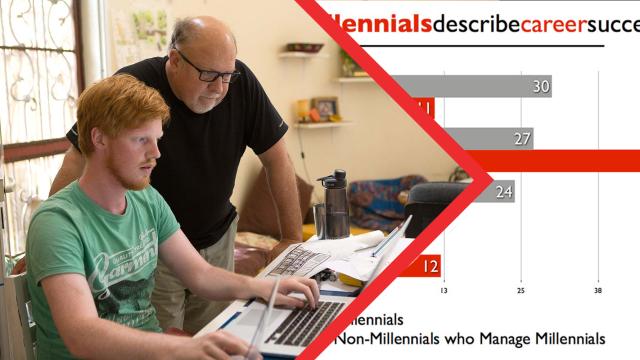Building bridges across the workplace generation gap—from younger to older.
Last time I wrote to shed some light on techniques and practices that older generation managers might use to best lead their millennial employees. However, the bridge across this generation gap can also be approached from the opposite bank. What is the millennial’s role in bridging the generation gap in the workplace? The answer hinges on the general idea of respect. The older generation, which currently occupies many of the management positions throughout the corporate world, highly values particular notions about respect in the workplace.
Everyone in every generation wants to be shown respect, and respect in turn is something that is often earned when it is first shown. But when values change over generations, notions about respect will also change. So if the younger millennial worker can learn to show respect for what is valued by his/her superiors, the respect shown will likely be appreciated and reciprocated. Here are three areas in which the typical millennial could work on building bridges of respect in the work place.
Respecting Time
Despite being a generation which values and desires autonomy and freedom, millennials will do well to remember and respect the hours of the workday. This starts by being on time. No matter what time your office starts the day, you should always be on time. For some in this generation, the practice of walking through the office door before the clock strikes 8:00am is not the problem. Being at their desk and ready to work at that time, however, is a different story. In the eyes of the older generation, being on time means being ready to start working at that time. Millennials should take this into account and show respect by making adjustments in their schedule if they need extra time to stroll in, fix a cup of coffee, check their messages, put on their make-up, or etc. In order to display an appropriate respect for the timeliness of the workplace an individual should complete all of these things prior to the start time of the work day.

Respecting time in the workplace also means using that time toward work tasks. With the multitude of distractions that come through the many screens found in the typical office setting, millennials must maintain high self-discipline. Whether it is scrolling Facebook, sending personal emails, snapping selfies for Snapchat, updating their Insta-stories, tweeting, or constructing a new playlist, millennials must limit their personal screen time and stay off their mobile phones. This self-discipline displays a high sense of responsibility as the individual devotes themselves to tasks they are being paid to complete, rather than using paid hours for personal time. It also communicates that he/she respects their time commitment to the company, as well as the time of colleagues working around them. Characteristics such as these will get the attention and respect of the older generation.
Respecting Work Ethic
Another element of office life the older generation holds in high regard is the actual act and effort of getting work done. Older generations came up in a time when “competition to stand out existed alongside a need to fit into the system—all of which created the belief that you win by being competitive, ambitious, and willing to burn the midnight oil”, as explained by Sarah Albro and Anne Collier. Now bosses and managers, these people like to see employees who also exhibit this same mentality. Known as the generation who started the workaholic trend, many members of today’s more mature workforce maintain a process-oriented mindset and were in some ways taught that performance is measured by the number of hours at your desk. In contrast, many millennials believe that because of technology, they should be able to work flexibly anytime and anyplace. They also believe they should be evaluated on their final work product—not how it was done, when it was done, or where it was done.


Millennial workers need to break out of their ‘work smarter, not harder’ mindsets long enough to acknowledge and appreciate the process of getting a job done rather than just the end result. Millennial’s also need to remember that their older generation managers are motivated more by pay and sense of responsibility to do any job well. So they expect millennials to work hard in ‘unglamorous’ peripheral or support roles which may not deliver the ‘important cause’ or ‘accomplishment’ motivators millennials are looking for. These are ways of showing respect to the older generation’s more formal, process-oriented way of working. Additionally, while it may not be necessary for a millennial worker to always be the first in and last out of the office, showing a willingness to stay late or come in early on certain occasions will speak loudly to superiors. Taking advantage of opportunities to prove a willingness and ability to work long and hard in the office will certainly gain respect from the older generation. That in turn may even become a platform to suggest new methods or standards of flexibility in the office.
Respectful Attitude
A respectful attitude is another essential tool for millennials to win the respect of older generations. While asking questions about every little thing might be seen as ignorant and lazy, there are good questions to ask in the office. Asking these kinds of questions can show that an employee is maintaining a sense of humility and an eagerness to learn, and will translate well to bosses and managers. A key in this is to ask questions that seek out the wisdom an older generation worker might have from years of experience on the topic or issue concerned. Many in the older generations believe that experience on the job is one of the most valuable assets. Asking them for input or even assistance as you learn a new task will display a much appreciated, though also sometimes expected, respect for their years of experience and hard work. This will certainly gain their respect in return.
The basic act of listening will also go a long way in demonstrating respect. Incorporating feedback is a specific area of listening that is particularly crucial to the millennial generation. As individuals who love affirmation, these young employees must also be able to receive criticism well. All feedback—both positive and negative—needs to be converted into an improved product or behavior in the workplace.

Whether asking or listening, communication manner is a critical aspect of one’s attitude. It is important for millennials to remember that how you say something can often be more important than what you say. This is especially true of communication with authorities. Most millennials have grown up in an environment where they are “friends” with their bosses and parents on Facebook, interactions with superiors is considered normal, and in general they prefer a more flat/horizontal authority structure. By contrast, those of the older generation worked within much more vertical hierarchies for much of their careers, and so they have different notions about communicating respect and deference for authority. As Colleen Dilenschneider explains in her article Five Things I Have Learned as a Millennial Working with Baby Boomers this acknowledgment of authority in your communication manner can be huge in both showing and gaining respect in the workplace. She says:
Bursting into the CEO’s office and word-vomiting generally doesn’t do justice to the passions of our thoughts. As a millennial, it is to my net benefit to respect the way that baby boomers function. Abiding by a protocol is not compromising the integrity of our ideas—it is a smart tactic to ensure that our ideas gain the maximum traction in the eyes of leadership. When it comes to the respect that millennials crave, well, you get what you give.
There are definite things a millennial can do in order to better fit in and adapt to today’s older generation-managed workplace. Millennials must own some of the responsibility for adjusting behaviors and attitudes to better comply and serve in these office settings. Adapting specifically to the concepts of respect that matter to one’s older managers is key to building this bridge between the generations. Millennials have a choice and they too can play a role in bridging the gap.
The EMI Fund
The EMI Fund supports all that we do at EMI. With a strong foundation, we can keep designing a world of hope.
EMI Tech is looking for contributors – write to editor@emiworld.org with your topic and article outline.

